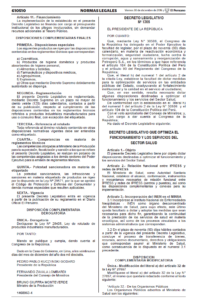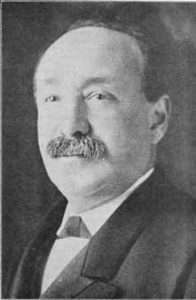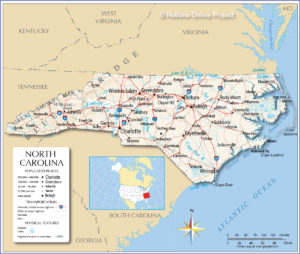By SHERRY F. COLB
Wednesday, Aug. 10, 2005
Jenny Paulino stands accused of running a prostitution ring on the Upper East Side of Manhattan. Among other defense arguments, Paulino moved to dismiss the case on Equal Protection grounds. She claimed that the Manhattan District Attorney’s office selectively targets “escort services” for prosecution, while ignoring distributors of adult films, who are engaged in what is essentially the same activity.
Justice Budd G. Goodman recently issued a ruling rejecting Paulino’s claim, on the ground that pornography does not qualify as prostitution under the relevant New York statute. “[P]rostitution,” said Justice Goodman, “is and has always been intuitively defined as a bilateral exchange between a prostitute and a client.” Therefore, the judge explained, the District Attorney’s office has not ignored one form of prostitution and pursued another, within the meaning of the law.
Though the Equal Protection argument may be weak as a matter of statutory interpretation, the distinction between prostitution and pornography is not nearly as clear as Justice Goodman suggests.
What Is Prostitution?
As Justice Goodman asserts, most of us typically think of prostitution as involving a customer who pays a prostitute for providing sexual services to that customer. We intuit that pornography, by contrast, involves a customer paying an actor for providing sexual services to another actor.
In other words, prostitution is generally understood as the bilateral trading of sex for money, while pornography involves the customer of an adult film paying money to watch other people have sex with each other, while receiving no sexual favors himself in return for his money.
In keeping with this distinction, notes Justice Goodman, “the pornographic motion picture industry has flourished without prosecution since its infancy.” The failure of the New York legislature to do anything about this state of affairs, moreover, further demonstrates that New York’s prostitution statute was never intended to encompass pornography.
Is It Sensible To Exclude Pornography From Laws Against Prostitution?
Justice Goodman may be correct about the statute in question, although the statutory language does not help his position.
New York Penal Law defines a prostitute as a person “who engages or agrees or offers to engage in sexual conduct with another person in return for a fee.” A pornographic actor does just that: Like a more typical prostitute, he or she engages in sex in return for a fee.
Still, as Justice Goodman points out, traditional interpretations of the word “prostitute” narrow the literal definition to exempt pornography.
But that leads to another question: Does the pornography exemption make sense?
Stated differently, the District Attorney’s office has perhaps correctly divined the legislative intent behind the statute at issue, but there might nonetheless be something fundamentally unfair about exempting distributors of nonobscene pornography from the vice laws.
To appreciate the unfairness, let us examine some of the arguments for this distinction.
Free Speech: One Possible Distinction Between Prostitution and Pornography
Most distributors of pornography would express shock at the prospect of being prosecuted for promoting prostitution. Under Miller v. California, as long as a work, taken as a whole, has “serious literary, artistic, political, or scientific value,” the First Amendment protects its distribution. Given this legal principle, how could pornography be criminal, in the way that prostitution is?
One might begin to formulate an answer in the following way. The process of filming and distributing pornography is indeed considered protected speech, under the Supreme Court’s First Amendment precedents. However, the First Amendment does not insulate the commission of crime from prosecution just because someone with a camera records the crime and intends to sell that recording to customers.
In keeping with this portrayal, one could reasonably characterize pornography as the payment of prostitutes for having sex in front of a camera. Though the film itself might be protected by the First Amendment, it could nonetheless constitute evidence of paid-for sexual encounters — that is, evidence of prostitution — if a statute were designed to extend to that sort of prostitution.
For clarification, let us take an example from another area of criminal law. Doug the drug-dealer sells Carl the customer eight ounces of marijuana. Both Doug and Carl are guilty of (different) criminal acts for having engaged in this illicit transaction. Assume that there is an audience for such transactions on reality television (all rights reserved). In anticipation of this audience, Fiona the filmmaker pays Doug and Carl to permit her to tape them carrying out their business.
Has Fiona done anything illegal? No, but neither has her First-Amendment-protected act of filming and distributing her recording altered the illegal character of Doug’s and Carl’s conduct. Doug and Carl may still be prosecuted for engaging in a drug transaction, despite the fact that Fiona may not be prosecuted for taping it or showing the tape.
Furthermore, Fiona’s tape may be subpoenaed and used by the District Attorney’s office as evidence of the drug transactions charged against Doug and Carl.
Some Possible Differences Between Filming Drug-Dealing, and Filming Pornography
To be sure, there are some differences between Fiona and the pornography distributor, which might translate into differences between pornographic actors, on the one hand, and Doug and Carl, on the other.
In our example, Doug and Carl have engaged in a drug transaction, and the only element that Fiona has added to the mix is her filming of that transaction. In the case of pornography, however, the actors having sex are doing so precisely because they are being filmed. The taping, in other words, is not just “evidence” of their having sex; it is the entire point of that sex. In pornography, then, the recording is an integral, rather than a peripheral, part of the transaction.
What this means is that unlike Doug and Carl, the people who have sex for the camera are actors, and acting — unlike drug-dealing or prostitution — is part of what falls within the protection of the First Amendment.
A better analogy to pornography might therefore be a film-maker paying Doug and Carl to act as though they are dealing drugs for the camera when in fact they are not. In such a case, of course, there would be no grounds for prosecuting the two men.
Not So Fast: Does the Pornographic Actor/Prostitute Distinction Really Work?
The distinction between pornography and prostitution is not, however, quite so straightforward as the latter analogy suggests. A couple having actual sex for the camera — let’s call the people Jason and June — is different from Doug and Carl pretending to deal drugs. Doug and Carl really are just acting, but having intercourse is not just acting — it is also bona fide sex.
That is what distinguishes a pornographic film from a film in which people pretend that they’re having sex when they are not. In that sense, the reality TV example of Doug and Carl may be more like adult film than it initially appeared to be. Doug and Carl truly are dealing drugs and there is also filming going on, just as Jason and June really are having sex and there is also filming going on.
Why Real Sex is Not Like Acting, From the Law’s Point of View
But why should the distinction between pretending to have sex, and actually having it, make a difference, from a legal standpoint?
The sex act is a legally significant event. If it occurs without consent, it is rape. If it takes place between a married person and a third party, it is adultery. If it occurs and leads to the birth of a child, then the man is legally responsible for that child until the age of 18. And if it happens in exchange for a fee, then it is prostitution.
Pretending to have sex, however, for a camera or in private, triggers none of these legal consequences and can therefore be characterized as mere acting.
Who Is Paying Whom and Should It Matter?
When pornography is correctly understood as involving real sex, the question in comparing pornography to prostitution becomes whether who is paying whom matters (or should matter) to the law. That is, should it make a difference whether Jason pays June to have sex with Jason or whether, instead, Filmore (the filmmaker) pays June to have sex with Jason?
If these two scenarios seem functionally equivalent, then there may be something seriously wrong with our laws.
Consider the following example. Jason has just turned 21, and he is a virgin. His uncle Lecher believes that Jason should have some experience with sex before he finishes college, so Lecher pays June (a family friend) to have sex with Jason. Jason happily accepts this gift, and June carries out her side of the deal.
It does seem that in this example, prostitution has taken place. The payor may not be the same person as the recipient of sexual services, but so what? In all relevant respects, this transaction appears to fall within any reasonable definition of prostitution, with June in the role of prostitute and either Lecher or Jason or both (depending on the state of mind of each of them with respect to the quid pro quo) in the role of customer. Justice Goodman’s emphasis on the bilateral nature of prostitution no longer seems well-placed.
How are Adult Films Different?
If it “intuitively” seems like prostitution even when a third party pays someone to have sex with another third party, then what makes adult films so different? Is it the fact that Uncle Lecher is not seeking his own sexual gratification (in the way that a customer of pornography is) but someone else’s (Jason’s)? If so, then assume that Uncle Lecher wants to watch June and Jason having sex. That added feature hardly seems to mitigate the character of the act as prostitution.
Is the important difference instead the fact that Jason, the college student, is seeking sexual gratification from June, the prostitute, while neither Jason the porn star nor June the porn star are seeking sexual gratification for themselves? If that matters, then assume that Jason the porn star loves his work (and could be earning a lot more as a regular actor), so he is as interested in sexual gratification as Jason the college student is.
On these facts, in both pornography and conventional prostitution, people are having sex with other people as a condition of getting paid, and someone seeking sexual gratification but not money is ultimately driving the demand for the activity (the customer of the prostitute, in one case, and the future viewer of the pornography, on the other).
The First Amendment Returns: Why the Court Protects Pornographic Films
Having said all of this, it is nonetheless almost certain that on its current precedents, the U.S. Supreme Court would hold that garden-variety pornographic actors are indeed engaged in First-Amendment-protected activity, so long asobscenity – as defined by the Miller test, quoted in part above — is not involved. Odd as it may seem, what appears finally to make all of the difference is the mode of gratification for the person who is paying but not himself seeking money.
The ultimate demand for pornography comes from the viewer of pornography, and what excites him is the watching of the adult film, rather than any physical act performed on him by another person. The “enjoyment” of pornography is therefore as “speech,” rather than as action.
Though real sex occurred in the making of the pornographic film, this fact is only relevant insofar as it is known (or believed) by the viewer. If, for example, the entire film were created with highly realistic computer graphics, but the viewer believed that what he saw was real, then he would enjoy the material just as much.
Because the impact of pornography occurs through the mediation of an audience witnessing a performance, rather than an audience receiving physical services from a performer, pornography and its making qualify as First-Amendment protected speech.
Does this make sense? Consider again the significance of the sexual act: legal consequences can follow from it and it can, accordingly, be regulated by the law in a variety of ways. Though two people may very much want to have sex with each other in private, the law can intervene to say that they cannot, just because one of them seeks money and the other gratification, for example.
If, however, both members of the couple are in it for the money, and there is a man with a camera taping them so that millions of people can buy or rent the tape and masturbate to it, then the sex is insulated by the Constitution from legal regulation.
That is in fact the law, but Jenny Paulino can hardly be faulted for calling it arbitrary.
—
Sherry F. Colb, a FindLaw columnist, is Professor and Frederick B. Lacey Scholar at Rutgers Law School in Newark. Her columns on criminal law and procedure, among other subjects, may be found in the archive of her work on this site.
In: findlaw






